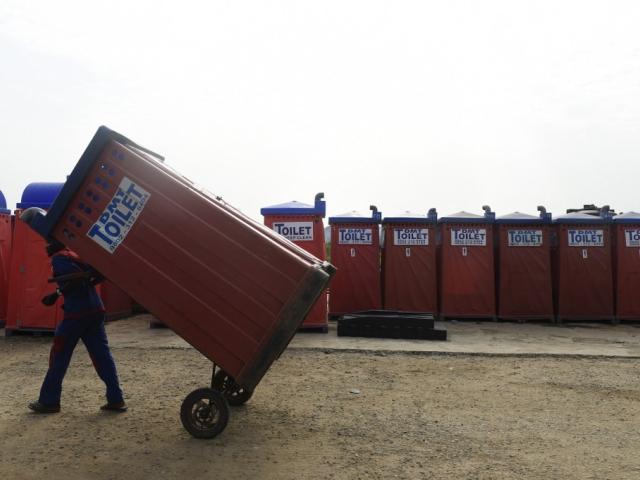“SHEEP FAECES IS N0W BIG M0NEY,” reads a startling message circulating on Facebook in December 2021.
“Sheep faeces is now in high demand in China because of it's richness in protein.” It adds: “It's served in most cases with a combination of fruit juice, soya milk and other such extracts.”
The message includes four photos. The first shows a spoon filled with small black balls being held over a cup containing a light brown liquid. The second is of containers filled with the black balls. In the third, a goat appears to be pooping into a cup. The fourth photo shows hands holding cups filled with the black balls and light brown liquid.
Do the photos show drinks made with sheep poo, now popular in China?

Photos of boba tea with too many tapioca pearls
A reverse image search reveals that three of the photos originally appeared on Chinese-language websites in August 2021. The fourth image of the goat appears to be photoshopped, with the photo of the drink superimposed onto the goat.
The China Post, a Taiwanese media outlet, reported that a social media user had uploaded the fourth photo onto Facebook. A machine translation reveals that the photo is of boba tea and went viral online because of the excessive number of pearls in the tea.
Boba tea is a popular drink created in Taiwan in the 1980s. The black balls are made from tapioca starch, which is boiled and steeped in caramelised sugar. The tapioca “pearls” are then added to milk and crushed ice.
The drink is known outside Taiwan as “bubble tea” and different varieties of it exist.
Ignore the viral message. Sheep faeces are not part of a popular drink in China. The photos show boba tea, and the black balls are tapioca, not sheep poo.
Republish our content for free
For publishers: what to do if your post is rated false
A fact-checker has rated your Facebook or Instagram post as “false”, “altered”, “partly false” or “missing context”. This could have serious consequences. What do you do?
Click on our guide for the steps you should follow.
Publishers guideAfrica Check teams up with Facebook
Africa Check is a partner in Meta's third-party fact-checking programme to help stop the spread of false information on social media.
The content we rate as “false” will be downgraded on Facebook and Instagram. This means fewer people will see it.
You can also help identify false information on Facebook. This guide explains how.



Add new comment